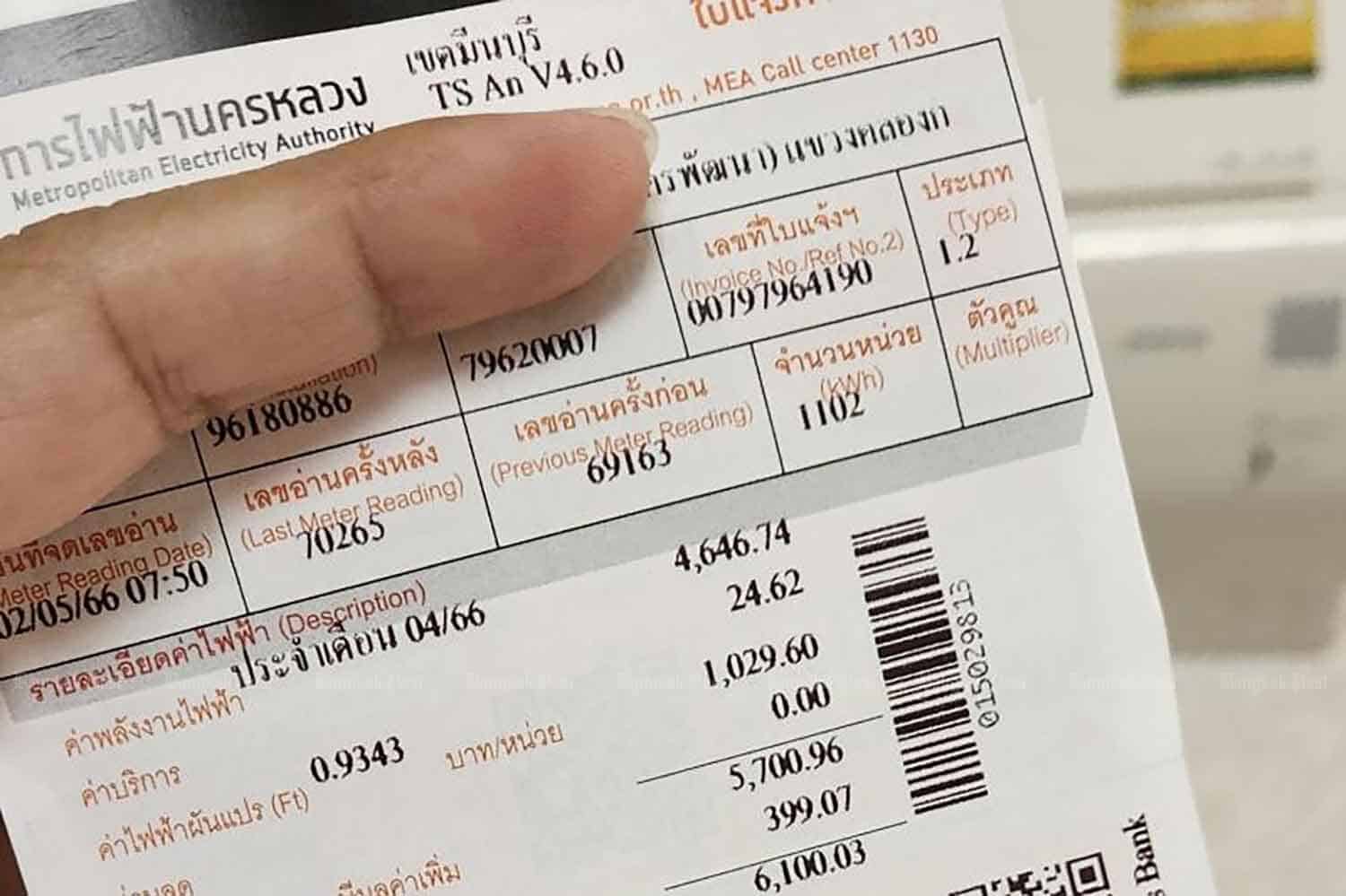Power play: Thailand set to slash electricity bills with tariff tweak

In a shock move that could see electricity bills slashed, the Energy Regulatory Commission (ERC) is eyeing a reduction in the power tariff by 0.17 baht per kilowatt-hour. This welcome change hinges on the government trimming its budget for renewable energy promotion.
At present, the power tariff stands at 4.15 baht per unit, with a chunk earmarked for renewable energy initiatives, a factor inflating energy costs for households and businesses alike.
ERC Secretary General Poonpat Leesombatpiboon announced that a Cabinet or National Energy Policy Council decision to adjust these expenditures could instantly lower power bills, cutting the tariff to 3.89 baht per unit.
Thailand Prime Minister Paetongtarn Shinawatra previously voiced her commitment to keeping electricity prices under 4 baht per unit to ease the financial strain on consumers.
Her father, Thaksin, regarded as the de facto leader of the ruling Pheu Thai Party, further floated the idea of dropping prices to 3.70 baht per unit, a target she sees as attainable.
The ERC plans to pitch this 0.17-baht reduction to the Thai premier this week, with hopes of implementing the lower tariff from May to August. However, this depends on revising the spending allocated to renewable energy promotion. The current rates remain in place until the end of April.

Bangkok Post reported that Thailand is projected to consume 195 billion units of electricity this year. The proposed tariff cut could lead to an impressive saving of up to 33.2 billion baht, according to ERC calculations.
At present, government expenditure on renewable energy, known as feed-in tariffs and adder tariffs, makes up 4% of the overall power tariff. These funds bolster state policies, including clean energy projects and the Energy Development Fund.
State electricity agencies are responsible for paying these tariffs when engaging in power purchase agreements with small and very small power producers, with capacities up to 90 and 10 megawatts respectively.
These agreements oblige officials to purchase power at rates higher than generation costs to encourage renewable energy investments, inadvertently driving up consumer bills. Currently, 533 projects with a collective capacity of 3,940 megawatts receive these tariffs.
If the ERC’s measures receive the green light, tariffs for companies involved in these projects will see adjustments. Poonpat emphasised that this realignment is crucial, given that many firms have passed the break-even threshold and solar panel costs have dropped.
The government’s backing of renewable energy investments dates back to 2004, yet current circumstances call for a rethink to bring down consumer costs.
































